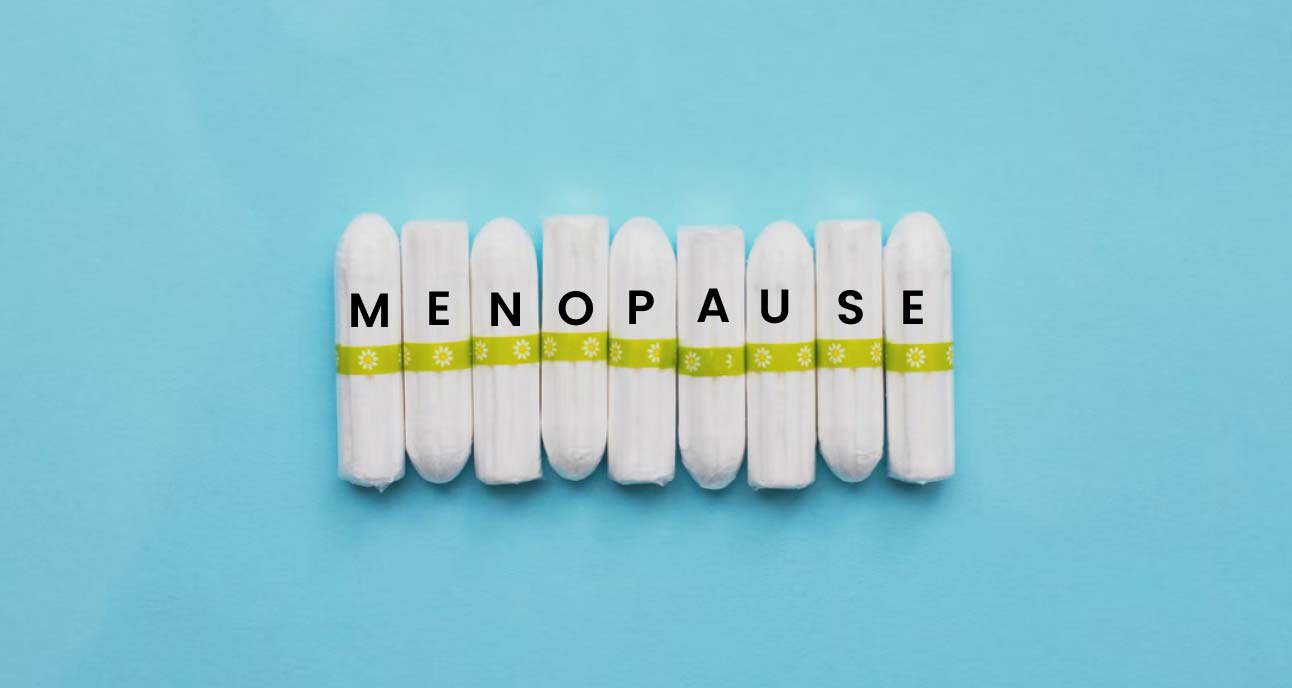Menopause: The end of an era!

Menopause occurs when you’ve stopped producing the hormones that cause your menstrual period and have gone without a period for 12 months in a row. Menopause is a natural part of aging and marks the end of the female reproductive years.
If you are unsure if you are in menopause, your doctor will be able to tell you based on your symptoms and how long it's been since your last menstrual period. At times a blood sample is taken to check the hormone levels. There are three stages of menopause: perimenopause, menopause and post-menopause.
The years leading up to menopause, when women may have irregular periods, vaginal/vulvar itching, vaginal dryness, hot flashes, chills, night sweats, sleep problems, mood changes, weight gain and slowed metabolism, cognitive changes (difficulty remembering names, directions, losing focus/train of thought) or other symptoms, are called the menopausal transition or perimenopause. The menopausal transition most often begins between ages 45 and 55.
If you haven't undergone menopause, you will experience menopause if both ovaries are removed. This deprives the body of the hormones, such as estrogen and progesterone, produced in the ovaries, leading to complications of menopause signs and symptoms, such as hot flashes and vaginal dryness.
Post-menopause is the time after menopause has occurred. Once this happens, you're in post-menopause for the rest of your life and you are unlikely to get pregnant as your ovaries are likely to stop releasing eggs. However, until your doctor has confirmed you are no longer ovulating, continue to use birth control if you don't want to become pregnant.
There is no specific age at which that you are automatically in post-menopause. Once your period has been absent for more than one year, you're in post-menopause regardless of age. On average, people go through menopause around 51 years of age.
Most people in post-menopause feel lingering symptoms from menopause mentioned above. The symptoms are less intense and in some cases, almost disappear. However, if your symptoms become more intense or interfere with your daily life, speak to a doctor to rule out any underlying condition causing these symptoms.
For example, vaginal bleeding during post-menopause isn't a normal side effect. While the dryness in your vagina could cause some light bleeding or spotting after sex in some cases, in others, it could indicate a condition like endometrial hyperplasia (thickening of inner lining of the womb) or uterine fibroids, infections like endometritis (irritation or infection of inner lining of the uterus), or cancer, which is why an evaluation from your doctor is important.
People in post-menopause are at an increased risk for certain health conditions like osteoporosis and cardio vascular disease. Medication or healthy lifestyle changes such as eating a healthy diet, exercising regularly and not smoking may reduce the risk of these conditions. People in post-menopause may continue to struggle with vaginal dryness for years after their last period. Using vaginal lubricants can help ease any discomfort caused by sex. This will also help women who have lost interest in sex due to vaginal dryness and discomfort.
Many people in post-menopause also experience mental health issues such as depression, anxiety and moodiness, which could be caused by stress, sexual tension, decreased hormone levels or other life challenges that occur during this time. Such mental health issues can also reduce the levels of interest in sex for some women. Speaking to a counsellor or therapist about how you are feeling is likely to help during this difficult period.
It is recommended that you still go for routine gynecological care even though you aren't menstruating and do the necessary pap tests, pelvic exams, breast exams and mammograms. Bone density screenings are also recommended due to the increased risk of osteoporosis.
Menopause can be uncomfortable and present new challenges and health concerns. Doctors and counsellors can assist in supporting you through this time and you must speak with them to get the care you need if you have any symptoms mentioned above. There is also a support organization called the Menopause Society of Sri Lanka that is composed of health professionals from different specialties such as gynecology, internal medicine, and public health who will be happy to assist you.

“Menopause is a significant physiological event in a woman’s
life. It is a challenge for a Gynecologist. With the improvement
of health care in Sri Lanka, the life span of a female is
extended to 80 years. Therefore, one-third of a woman’s life
is spent on Menopause”
Prof. Sanath Lanerolle
Consultant Obstetrician and Gynecologist
Castle Street Hospital for Women – Borella
President
Sri Lanka College of Obstetricians and Gynecologists
Past President
Menopause Society of Sri Lanka
.png)



